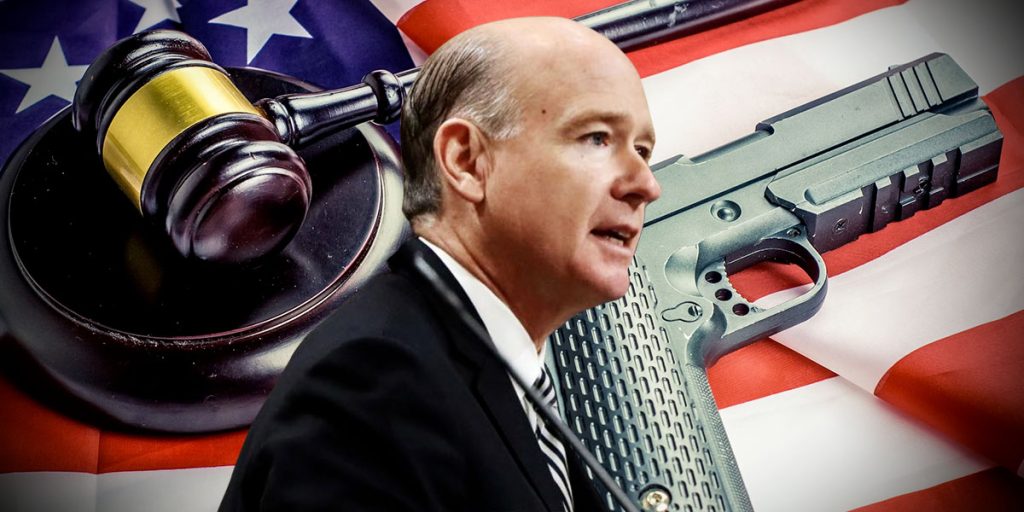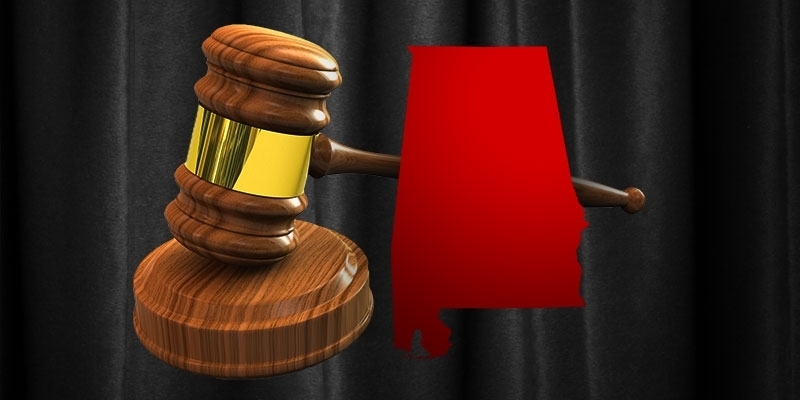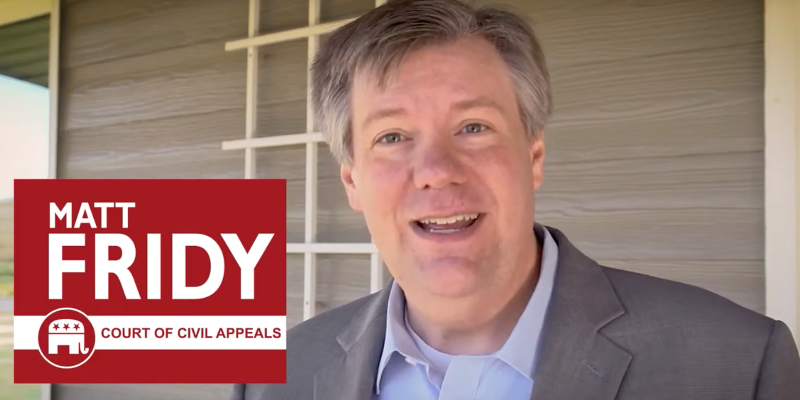MONTGOMERY — The Alabama House of Representatives on Wednesday passed as substituted State Rep. Matt Fridy’s (R-Montevallo) HB 498, a bill intended to safeguard freedom of speech on college campuses in the Yellowhammer State.
The bill would require Alabama’s public colleges and universities to protect and adopt policies that uphold the First Amendment free speech rights for students and faculty. HB 498 would also provide a cause of legal action for violations by public higher education institutions under the legislation.
First, HB 498 would eliminate overly broad and ambiguous speech policies that infringe on expression protected by the U.S. and state constitutions, checked by constitutional limitations like yelling “fire” in a crowded theater. Second, the bill would eliminate so-called “free speech zones.” Finally, the proposal would empower the institutions to protect free expression by members of the campus community from unlawful violations by other members of the campus community.
In a House committee meeting on the bill, Fridy previously explained that this third tenet has to do with protecting students from “shout downs.” The bill sponsor said HB 498 is modeled after legislation already adopted by approximately 15 other states, as an “assault” on free speech and expression occurs on college campuses from coast-to-coast.
Fridy’s legislation states, “Alabama’s public institutions of higher education have historically embraced a commitment to freedom of speech and expression.”
However, he said that there are policies in place on campuses across the state that violate the First Amendment.
In fact, it was reported in recent months that Alabama A&M University and the University of North Alabama were named to the list of the “10 Worst Colleges for Free Speech” by the Foundation for Individual Rights in Education.
In the committee meeting previously, opponents said that the constitutional guarantee to free speech already protects the rights that the bill intends to defend, making it an ultimately redundant government-overreach.
Yet, conservatives in Alabama and across the country have lauded Fridy for bringing the bill.
Eagle Forum of Alabama has endorsed the legislation, saying Fridy is “one of the strongest voices in the Alabama legislature in support of individual liberty and our Constitutional principles of limited government.”
In the committee meeting, prominent National Review commentator and Senior Fellow at the Ethics and Public Policy Center Stanley Kurtz spoke in ardent support of the bill, decrying the “shout down culture” growing on college campuses nationwide.
Kurtz mentioned CIA Director Gina Haspel being heckled at Auburn University in a recent appearance, where the protester was promptly removed.
At the committee meeting, a former Auburn undergrad opposed the bill, claiming institutions should have the right to disallow speech by those that “disrupt” “campus culture.”
This former student also exposed a big reason Fridy feels he needed to bring the bill. The former student preached diversity and inclusion while advocating for excluding speech when there is “a difference of opinion.”
The ACLU of Alabama Executive Director Randall Marshall also spoke in opposition to HB 498, with the caveat that the bill contains some good provisions. However, Marshall concluded, in his view, that allowing colleges to enact anti-discrimination policies outweigh individuals’ right to free speech and expression.
One vocal supporter of the bill in committee was State Rep. Tracy Estes (R-Winfield), a career journalist from northwest Alabama. He lamented, “Our society has gone soft.”
Estes said people do not have the right not to be offended, which they seem to think overrides constitutionally protected freedom of speech.
In eye-opening fashion, members of the Alabama House Democratic Caucus on Wednesday proved Estes’ comments right as they spoke on the floor against HB 498. You can follow a live-tweet thread of the debate here.
While Republicans like State Reps. Terri Collins (R-Decatur), Danny Garrett (R-Trussville), Kerry Rich (R-Boaz) and Proncey Robertson (R-Mt. Hope) came up to voice their support of Fridy and the bill in spots, the debate was plagued by dizzying arguments against the First Amendment by House Democrats.
For example, even after Fridy walked him through the legal difference between hate speech and dangerous speech, State Rep. Thomas “Action” Jackson (D-Thomasville) said public higher education institutions should have the right to disallow and/or censor hate speech.
Fridy made the follow-up point that the best way to counter hate speech “is more speech” by those with differing viewpoints.
Jackson later claimed that forcing public higher education institutions to uphold students’ free speech rights is violating the “freedom” of those institutions.
“The freedom to reject,” Jackson said, seemingly making up a new clause of the U.S. Constitution.
“The government doesn’t have a freedom to reject,” Fridy advised.
Jackson responded, “[They’re] not the government.”
Friday explained that public colleges and universities are indeed government entities.
Jackson then said the leadership of these institutions should be able to “make that decision” whether they want to usurp the First Amendment or not.
“They are government,” Fridy reiterated.
“Yeah, but they’re a governing body,” Jackson remarked.
Jackson’s speech of opposition stirred up longtime State Rep. Mary Moore (D-Birmingham), who said, “I think all people that are invited on our colleges’ campuses don’t need to be there.”
Moore argued against the notion that countering hate speech with other speech is the solution. Instead, her solution would be censorship of speech, with institutions picking and choosing what they feel is acceptable or politically correct.
She opined, “I don’t think that’s the truth,” regarding the notion of all opinions and beliefs being protected by the free speech clause of the First Amendment.
Moore then asserted that government should “be able to say no” on allowing what they deem as hate speech. She said the same power should apply to college/university administrators.
“I think that we don’t need to force them to allow everybody to come on [campus who is invited]. If students say they don’t think a certain person or group should be there, I think that we ought to at least listen to the students’ voices,” Moore stated. “I don’t think we need it all (all viewpoints).”
She added there are some perspectives “that we just don’t need to hear.”
“We need to get away from this, where you’re forcing people to be able to listen to information that they don’t want to hear,” Moore said. “Especially on our college campuses, that’s a place of learning. And if there’s a disagreement of views, than that occurs in the classroom [only].”
She added that institutions should be able to censor or disallow certain speech that might sow “confusion.”
Moore says this campus free speech bill would cause students to leave Alabama colleges… makes comparison to HB 314 abortion ban being harmful…
— Sean Ross (@sean_yhn) May 22, 2019
On HB 498, Moore emphasized, “I don’t think a bill to do this is appropriate at this time or at any time.”
Perhaps Moore’s most startling line of the day was, “Freedom of speech ain’t freedom.”
She continued, “And we know as a cause, even when we think we have freedom of speech, somebody paid some kind of price for those of us who are citizens of this country and other countries practicing democracy. Somebody shed some blood, somebody even gave their complete life. So, freedom of speech ain’t really freedom. Because somebody paid a price for us to have it. So, when we come back and take the option away for a [public institution’s] president or board of trustees to say it would not be in the best interest of our university to allow certain speakers to come on [campus]… I think that what we need to do is not be disruptive… I don’t think we need to take the freedom to say ‘no’ away.”
Moore’s performance was followed by other dramatic appearances by Democrats opposing the bill, including State Reps. Juandalyyn Givan and John Rogers of Birmingham.
Rogers openly admits, with a laugh, that there are people he doesn’t want to have the freedom of speech.
— Sean Ross (@sean_yhn) May 22, 2019
Rogers and other Democrats like State Rep. Napoleon Bracy (D-Mobile) said that public colleges and universities were adamantly opposing the bill, even though Fridy had worked with two-year and four-year institutions on some changes to the bill. Bracy is a trustee at Alabama State University.
Rogers emphasizing representatives of the state’s major universities have made it clear to him they still oppose the bill, even with changes made
— Sean Ross (@sean_yhn) May 22, 2019
Asked about HB 498 by Yellowhammer News, a spokesman for Auburn University said, “We typically don’t comment on pending legislation, but Auburn leaders have worked with the bill’s sponsors to ensure they know that Auburn stands for free speech and robust exploration of ideas. We likewise stand for respect, equality and other principles fundamental to American society. While people have a right to voice their opinions, we also have a responsibility to speak up when others espouse racism, bigotry, hatred or other offensive views.”
A few off-the-wall ideas were proposed by Democrats during debate, too. Bracy came out in support of “safety zones” instead of “free speech zones” and Moore said controversial speeches should only be allowed over an institution’s closed-circuit TV system instead of in-person.
The final roll call vote on HB 498 was almost entirely by party line and came out 62-27.
The bill now heads to the Senate, where it faces a very short window of time before the legislative session ends next week.
Sean Ross is a staff writer for Yellowhammer News. You can follow him on Twitter @sean_yhn













